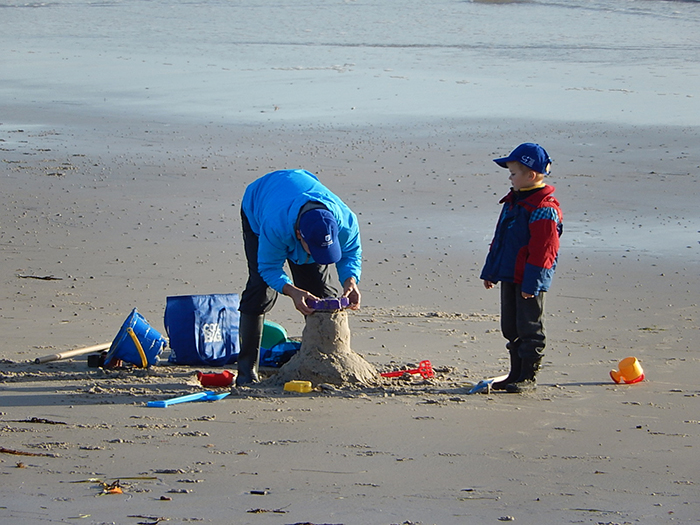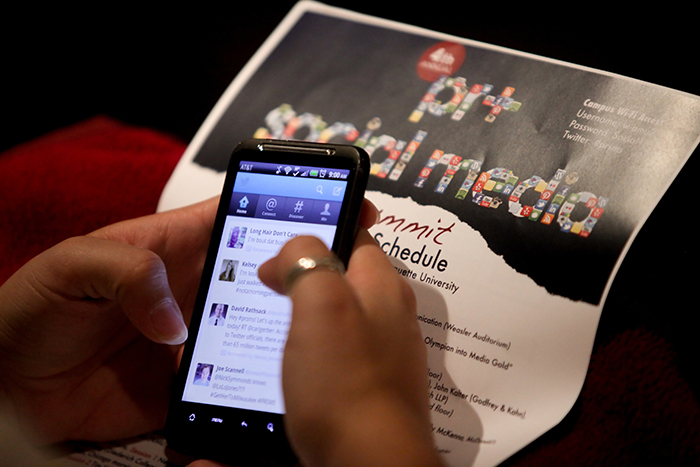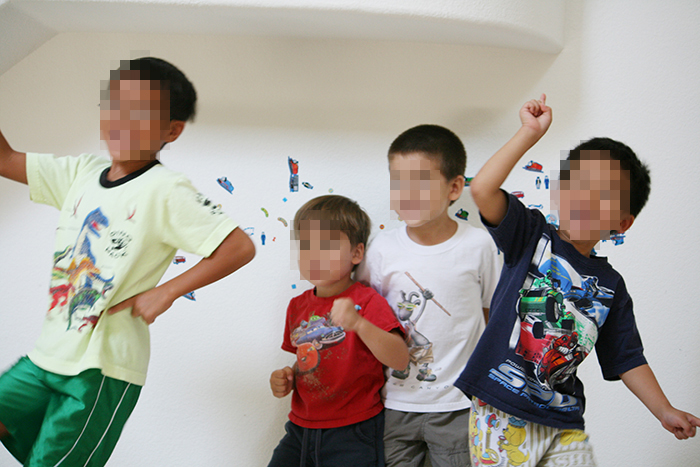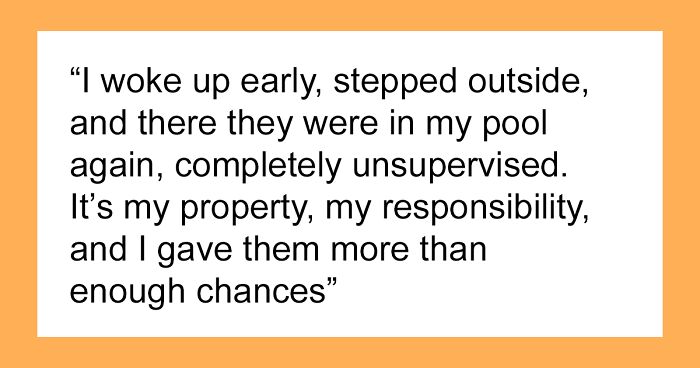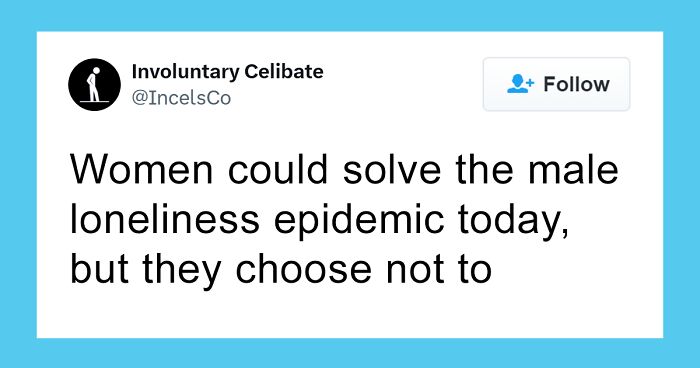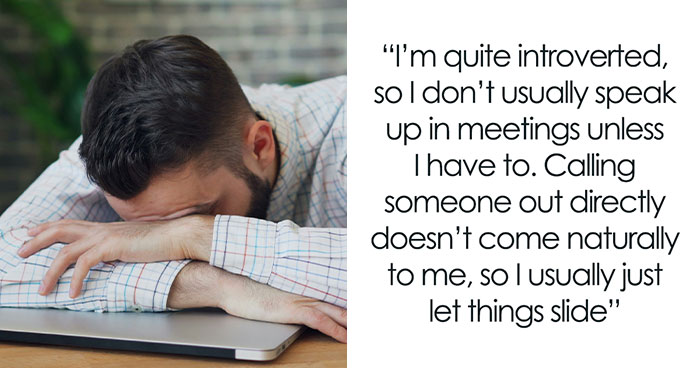Hundreds of research papers are being published each year on every possible topic you could imagine. Child development, depression, anxiety, social media, poverty, inequality - it's all covered. However, year 2018 stood out from any other time period as it was a breakthrough year for many psychological discoveries. For one, the psychiatrists have finally began talking about the widespread use of antidepressants and whether they're really as beneficial as they were thought to be. Another major finding of the past year, was that finally the mental burden that social media puts on people has finally been proven scientifically. In addition to this, the spreading epidemic of loneliness has also inspired scientists to take a hard look at what causes this alienation in the age of constant connection. Therefore, here we have compiled a list for you of the most prominent and important psychological research findings from 2018. Hopefully, this year will bring answers to questions that are still left unanswered. And maybe, just maybe, some of these will help you to look at your life choices a bit differently and will inspire to finally put that phone down, as your mother has always told you to.
This post may include affiliate links.
Helicopter Parenting Can Prevent Child's Emotional And Behavioral Control Development
During the study, associations across an 8-year time span between over-controlling parenting and child development were examined. Results showed that helicopter parenting at age 2 was associated with poor emotion regulation and inhibitory control at age 5. In addition to this, the 5-year-olds reported emotional and school problems. Teachers noted poor social skills and academic productivity, by the time they reached 10-years-old. Simply put, children with parents who are always looking over kids' shoulders, may have poor emotional and behavioral control. Study suggests that they are unprepared to cope with stress and are prone to lash out at others. This leads to poor social skills and inability to make friends as easily as other children do. "Children don't want to be friends with other children who cannot manage their anger, and hit them whenever there is a disagreement," Nicole B. Perry, co-author of the study says. According to her, being able to control your emotions and behavior "is one of the most fundamental skills that children develop in early childhood."
This will be news only to helicopter parents. My daughter helicoptered her (only child) son. He is now a 20 year old emotional mess. She continues to hover, and always will, because he can't cope without her.
Limiting Social Media Adds To Your Well-Being
The link between depression, poor self-esteem and social media has been talked about for years now, however, a causal connection hasn't been proven before. Last year, for the first time, a study conducted by a psychologist Melissa G. Hunt finally proved that Facebook, Snapchat and Instagram use decreases well-being. During the experiment, 143 undergraduates at the University of Pennsylvania were randomly assigned to either limit their Instagram, Facebook and Snapchat use to 10 minutes per platform per day, or to use social media accounts as usual for three weeks. The results showed that loneliness and depression reduced significantly over the three weeks in those, who had limited the use of social media platforms. The findings strongly suggest that limiting Facebook, Instagram and Snapchat (and any other social media platform) use to around 30 minutes per day, may leave a significant improvement in well-being. "Here's the bottom line," Melissa G. Hunt, the psychologist behind the research says. "Using less social media than you normally would leads to significant decreases in both depression and loneliness. These effects are particularly pronounced for folks who were more depressed when they came into the study." The conclusion? Well, we should all probably put our phones down and enjoy the real life a bit more. After all, the science has proven that it's good for you.
Don't care for social media. Had Facebook for a short while, restricted it to the extreme (like on,y visible to me), but didn't use it, so disconnected it. Never tried Twitter or any of the others. In other words, my life is my own, I like to disconnect, and I like my privacy.
Attending Regular Cultural Activities Can Dramatically Reduce The Risk For Depression In People Over The Age Of 50
In a research paper published in December, Dr Daisy Fancourt suggested a link between depression and engaging in cultural activities. In a 10-year study, 2000 people were tracked (all over the age of 50) to see how many cultural events they attended each month. People who went to plays, art exhibitions, movies and other events every few months, had a 32% lower risk of depression. Those who attended at least one event each month, had a 48% lower risk of the disease. The author of the study noted that it describes a correlation, rather than causation, but the results are nevertheless impressive and beneficial. Dr Daisy Fancourt added: "Generally speaking, people know the benefits of eating their five-a-day and of exercise for their physical and mental health, but there is very little awareness that cultural activities also have similar benefits.People engage with culture for the pure enjoyment of doing so, but we need to be raising awareness of their wider benefits too."
Being Sleepy Makes Us Want To Avoid People
Two researchers Eti Ben Simon and Matthew P. Walker from University of California decided to examine whether there is a link between sleep deprivation and loneliness. For their experiment, researchers invited both well rested and sleepy study subjects to undergo a brain scan while watching a person they don't know approach. As it turns out, tired participants were more repulsed by unfamiliar people and wanted them to stay father away. In addition to this, they have also reported feeling more lonely than well-rested people. In a follow-up experiment, the scientist also found that other people tend to avoid sleepy people: "individuals who know nothing of the experimental context nevertheless judge sleep-deprived participants as being significantly lonelier, and choose not to socially or collaboratively engage with them. " Even more so, according to researchers, people who come in contact with a sleep-deprived person, feel lonelier themselves as a result. Thereupon, having a good night's sleep makes you feel more empathetic, reduce our prejudices and make us less susceptible to rejection.
Contrary To Old Belief, Winning Big Sum Of Money In Lottery Increases Your Level Of Satisfaction In Life
For over 40 years, people believed a widely spread misconception that hitting the jackpot of a lottery will make you miserable. Such beliefs might be based on the research on lottery winnings from an earlier generation. However, a recent study conducted last year in August, showed evidence of the complete opposite. The authors of the research asked the Swedish statistical authorities to survey winners of the three major lotteries in the country, for over a decade. They then used the government records to track various aspects of the winners' lives. The scientists also examined the same indicators for people who entered the lottery but lost, in addition to those who won minor prizes. The results of the study revealed several conclusions: first, that winning a big monetary prize causes higher satisfaction in life (the previous studies only showed correlation between the two); second, people who won a lot of money, didn't blow most of the winnings at once, instead, they slowly spent their wealth over a long period of time. Third, many don't even quit their jobs, although they do tend to work a bit less and retire earlier. Therefore, the study proved the not-so-romantic truth – while money can't buy true happiness, it can certainly improve your satisfaction in life.
I never believed that more money makes you unhappy. Doesn't even make sense!
Violence In Movies Doesn't Turn Kids Violent
A new study suggests that, contrary to the popular belief, PG-13 rated movies do not make your kids violent. While according to researchers, PG-13 movies became more violent between the period of 1985 to 2015, the overall rates of murder and violence actually dropped. The lead researcher of the study noted that while kids may re-enact things that they saw in films, they don't tend to turn into violence in real life, such as bullying, for example. However, other researchers disagree, stating that portrayal of violent scenes in movies has become so common, it has a numbing effect. It means, that the more violence we see, the less we're affected by it. Dr. Michael Rich, director of the Center on Media and Child Health at Boston Children's Hospital, noted that the study attempts to simplify a very complex issue. "While violence has declined, it doesn't warrant the conclusion that we are not affected by violence in our media," he said. "As a pediatrician, I am more concerned about the violence that children experience every day, which is not reflected in crime stats."
Hanging Out With People Is Way More Fun When Your Smartphone Is Out Of Sight
Science has finally confirmed that looking at your phone while hanging out with friends makes it a lot less fun. The study investigated how smartphones influence in-person interactions – the researchers invited over 300 people to share a meal with their friends or family at a café. While some people set their phones on silent mode and put them away, some kept them right next to them on a table. After the meals, participants filled out surveys about their experience. The results, however, were not exactly shocking – people who kept their phones out of sight were happier and enjoyed the meal far more than those who didn't. All in all the study has concluded a simple but firm truth: hanging out with people is not as fun when your phone keeps intruding.
Obviously. The smartphone comes out when you don't know what to say to people.
Kids As Young As 5-Year-Old Already Care About Their Reputation
Up until recently, it was unknown whether young children cared about their reputations as such. In addition to this, little research has been done that focused on public image maintenance among children, in comparison to that of adults. Some twenty years ago it was widely believed that complex reputational behavior isn't acquired by children until they reach the age of 9. However, an article published in March 2018 suggests that by age five, children begin to understand the importance of reputation in social settings and are actively engaging in sophisticated impression management. Ike Silver, a co-author of the article has noted: “Young children will vary their behavior based on who is watching, and they will pass judgment on the reputational behaviors of others. All of these apparently emerging around the same time as, say, their ability to read a book or solve simple math problems.” The research was conducted by putting children in situations where reputation is relevant and it showed that kids can alter their behavior in "surprising and sometimes deceptive or strategic ways." However, it is yet unclear whether children are actively being deceptive or they are simply more kind when there's something to be gained by showing it off. Researchers hope that the finding will help to understand how children should be approached by their parents and teachers in order to encourage good behavior.
The Frequent Use Of Instagram Correlates With Depressive Symptoms, Low Self-Esteem And Anxiety Over Appearance In Young Women
Instagram is one of the most widely used social media platforms. However, one recent study examined the link between poor self-esteem and frequent use of Instagram. The researchers determined that the use of the aforementioned photo-sharing app could contribute to negative psychological outcomes in women. Scientists surveyed 119 women, aged 18 to 35, regarding their use of Instagram, self-perceptions and mental health outcomes. They found that, on average, frequent use of Instagram could lead to lower self-esteem, depressive symptoms, general and physical appearance anxiety and more body dissatisfaction. During the follow-up research, researchers showed women fitness, travel and beauty images from Instagram. Consequently, after having seen the photos, the participants rated their own physical attractiveness lower than a control group that saw no images.
The Use Of Psilocybin May Soon Be Available For Treating Various Mental Disorders
Psilocybin is a prodrug compound which occurs naturally in more than 200 species of mushrooms, usually referred to as psilocybin or "magic" mushrooms. The compound is a serotonin receptor agonist, which, simply put, means that once ingested, psilocybin is metabolized to psilocin which acts on serotonin (known as the happy chemical) receptors in the brain. It is now known that such mushrooms have been used by humans since ancient times. In the late 50s, the Swiss chemist isolated the active principle psilocybin and it became used in psychedelic psychotherapy. However, the enforced drug laws curbed scientific researches of this compound. Luckily, during the past decade, scientists are looking again at the psilocybin and are actively researching its benefits for treatment-resistant depression. Studies that were conducted over the recent years, has shown that psilocybin might have an ability to reset the connectivity of brain circuits, which plays a major role in depression. 2018 was the major breakthrough year for psilocybin and scientists are continuing their researches on the substance, with hopes to introduce it as a safe alternative to often ineffective over-the-counter antidepressants. The researches suggest that if it goes through the clinical trials, psilocybin should be re-categorized from a schedule I drug (meaning, it has no medical potential) to a schedule IV drug (which would be used as a prescription drug for various mental health issues). On October, 2018, the U.S. Food and Drug Administration (FDA) named psilocybin as potential "breakthrough therapy" as part of an upcoming international study on psilocybin-assisted therapy for patients with treatment-resistant depression (TRD).
Being In A Settled Relationship Increases The Chances Of Weight Gain
A 10 year study found that couples, in comparison to single people, tend to gain more weight. Even though previous research had proved that couples eat healthier foods than singletons, the study showed that they also eat more. It is believed that this might be due to the fact that people in long-term relationships aren't 'on the market' anymore so they don't care that much about their looks. Also, as one of the authors of the research comments: "whilst family meals may include more healthy foods such as fruits and vegetables and less fast food, people often consume larger portion sizes and more calories in the company of others than they do alone." In addition to this, it was found that people who have children, gain even more weight as they tend to finish kids' meals and snacks.
Poverty Experienced In Childhood May Leave Lasting Effects On Cognitive Skills In Older Age
According to the study, children who grew up in poverty or were otherwise socially and economically disadvantaged, may be more likely to score lower than others on cognitive skills tests. It was the largest study of its kind with over 20,000 seniors (71-year-olds on average) tested. It was found that people who had experienced socioeconomic disadvantages and hardships as children, scored significantly lower on cognitive tests as elderly adults. The research adds to the growing evidence of the destructive effects of "toxic stress" and "adverse childhood experiences" on children. The author of the study adds that “children facing social and economic challenges should be provided with more resources to counter the disadvantages they face."
I think it has more to do with the education level of the parents, or actual intelligence. Lots of intelligent poor people support their children in ways that help them develop cognitively. They encourage their kids to read a lot, they take them to the free admission days st the children's museum. They encourage creativity. They expose them to music, art, and poetry. They encourage them to do well in school and put effort into supporting them academically. These kids will do just fine. It's when the cause of the parent's poverty is their own developmental delays that of course, the kids are not exposed to these things and have a genetic predisposition to lower cognitive function. When it was a result of unfortunate circumstances and the parents are smart, the kids will still be smart.
Personal Evaluation Is Strongly Influenced By Untrustworthy Gossip
The aim of the research was to examine how much gossip and rumors (overall, affective information about other people's social behavior) affected people's opinions, biases and judgments. Social-emotional information about (im)moral behavior of someone they don't know, was presented verbally to people. During the first experiment, the information was presented as a trustworthy fact (e.g. "He bullied his colleague"), while during the second one, information was marked as untrustworthy gossip by using certain words (e.g., allegedly), which are employed by the media in order to indicate the questionable trustworthiness of the information to elude possible wrong accusations. The findings of the study concluded that in both cases, people's opinions are greatly influenced by rumors and gossips even when the information comes from an untrustworthy source. Authors of the research noted that "Our findings demonstrate a tendency for strong emotional evaluations and person judgments even when they are knowingly based on unclear evidence.
Students Make Friends Quicker Than Adults Do
Jeffrey A. Hall, a researcher from the University of Kansas took on the challenging task of finding out how much time it takes for a person to make a friend. It is the first study of its kind, as it not only examines what activities bring us closer together, but exactly how many hours it takes for an acquaintance to become a friend. Hall surveyed 112 college students every three weeks during their first nine weeks at a university. He then gave a one-time questionnaire to 355 adults who moved to a new city in the past six months. In the survey, the participants picked a friend or two and reported how much time they spend together, what activities they do, and how close the friendship is. The findings showed that it takes approximately 43 hours for students and 94 hours to adults to turn acquaintances into casual friends. To transition from casual friends, to friends – students need 57 hours, adults – 164. For friends to become good or best friends, students need around 119 hours, adults need approximately twice that much time to make that happen. Researcher believes that it takes less time for students to make friends because they spend much more time alongside their peers and they might as well overestimate exactly how deep their friendships are.
Do not panic if you don't make good friends at Uni, keep looking and you will find your place in the world :)
If everyone had common sense, Trump wouldn't be president and religion wouldn't exist
Load More Replies...Everyone is s******g on the "research" part and I get why, but I think it's valuable. It's always good to have something somewhat empirical to back up what you already know because we very often just take things for granted that turn out to be wrong. This research is important because sometimes it can be used to change minds. "That's bad" isn't as effective as "These independent studies have shown conclusively that...".
If everyone had common sense, Trump wouldn't be president and religion wouldn't exist
Load More Replies...Everyone is s******g on the "research" part and I get why, but I think it's valuable. It's always good to have something somewhat empirical to back up what you already know because we very often just take things for granted that turn out to be wrong. This research is important because sometimes it can be used to change minds. "That's bad" isn't as effective as "These independent studies have shown conclusively that...".

 Dark Mode
Dark Mode 

 No fees, cancel anytime
No fees, cancel anytime 




